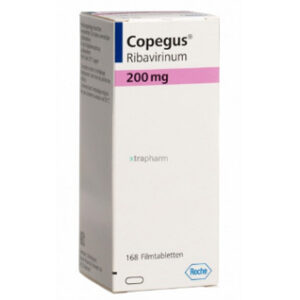Indinavir, an antiviral medication, belongs to the class of drugs known as protease inhibitors. It works by inhibiting the protease enzyme, which is necessary for the replication of the human immunodeficiency virus (HIV). By interfering with this process, indinavir helps to slow down the progression of HIV infection and improve the immune system’s ability to fight off other infections.
Indinavir is primarily prescribed for the treatment of HIV-1 infection in adults and children over the age of six. It is usually used in combination with other antiretroviral drugs as part of a comprehensive HIV treatment regimen.
Do’s and Don’ts
While indinavir can be highly effective in managing HIV infection, there are certain contraindications that individuals need to be aware of before using this medication:
- Do not take indinavir if you are allergic to it or any of its components.
- Avoid indinavir if you have severe liver disease.
- Inform your healthcare provider if you are pregnant or breastfeeding, as the safety of indinavir in these situations has not been fully established.
- Do not take indinavir if you are currently using certain medications that may interact with it. Refer to the “Indinavir and Other Medications” section for more details.
Adverse Reactions
Like any medication, indinavir can cause side effects. The most common adverse reactions reported by individuals taking indinavir include:
- Nausea and vomiting
- Diarrhea
- Abdominal pain
- Headache
- Rash
If any of these side effects persist or worsen, it is important to consult your healthcare provider for further guidance and support. In some cases, indinavir may also lead to more serious adverse reactions, such as kidney stones or liver problems. Seek immediate medical attention if you experience symptoms such as severe abdominal pain, yellowing of the skin or eyes, or difficulty urinating.
How to Use
Indinavir should be taken exactly as prescribed by your healthcare provider. It is typically recommended to take indinavir with water on an empty stomach, one hour before or two hours after a meal. This helps to enhance the absorption of the medication.
If you happen to miss a dose, take it as soon as you remember. However, if it is almost time for your next dose, skip the missed dose and continue with your regular dosing schedule. Do not double the dose to make up for a missed one.
In the case of an overdose, seek immediate medical attention. Overdose symptoms may include severe nausea, vomiting, drowsiness, dizziness, and confusion. The healthcare provider will provide appropriate treatment based on the severity of the overdose.
Indinavir and Other Medications
Indinavir can interact with several other medications, potentially affecting their efficacy or increasing the risk of side effects. It is crucial to inform your healthcare provider about all the medications you are currently taking, including prescription drugs, over-the-counter medications, and herbal supplements. Some medications that may interact with indinavir include:
| Medication | Interaction |
|---|---|
| Rifampin | Reduces indinavir levels in the blood |
| St. John’s Wort | Reduces indinavir levels in the blood |
| Ketoconazole | Increases indinavir levels in the blood |
This is not an exhaustive list, and there may be other medications that can interact with indinavir. Always consult your healthcare provider or pharmacist before starting or stopping any medications while taking indinavir.
Common Questions
-
Q: Can indinavir cure HIV?
A: Indinavir is not a cure for HIV. It helps to slow down the progression of the infection and improve the immune system’s response to fight off other infections. It should be used as part of a comprehensive HIV treatment regimen. -
Q: How long does it take for indinavir to start working?
A: The effectiveness of indinavir varies from person to person. It generally takes a few weeks to several months to see noticeable improvements in HIV-related symptoms and immune function. -
Q: Can indinavir be taken with food?
A: Indinavir should be taken on an empty stomach, preferably one hour before or two hours after a meal. This helps to enhance the absorption of the medication. -
Q: What should I do if I miss a dose?
A: If you miss a dose, take it as soon as you remember. However, if it is almost time for your next dose, skip the missed dose and continue with your regular dosing schedule. Do not double the dose to make up for a missed one. -
Q: Is it safe to take indinavir during pregnancy?
A: The safety of indinavir during pregnancy has not been fully established. It is important to discuss your pregnancy plans or the possibility of pregnancy with your healthcare provider before starting or continuing indinavir treatment.






Reviews
There are no reviews yet.